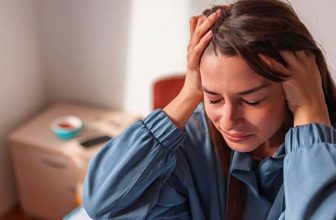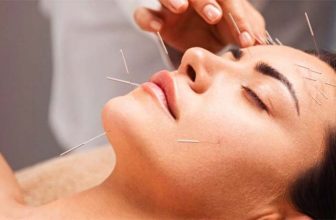
You’re working out to get stronger and healthier, right? Unfortunately, the pursuit of health can sometimes be dangerous, especially for gym newbies. Workout injuries are common and they can be debilitating. Working out can actually harm your health if you’re not careful!
If you get injured while exercising, do you know what to do? Do you know who’s responsible for that injury? We’re here to answer your questions so follow on for Workout Injuries: A Full Guide to Understanding Your Rights!
What to Do After a Workout Injury
There are so many different types of workouts and that means there are many different types of workout injuries. Preventing injuries is a learned skill, and the stronger and more agile you are, the better you can prevent them.
If you end up with a workout injury that seems serious, it’s best to visit the doctor if possible. If you’re in a situation in which you plan on hiring a personal injury lawyer to assess the situation, you’re going to want evidence that you sought medical care and you’ll need evidence of your medical costs. Otherwise, you may not have a case at all.
But what steps should you be taking when you get injured? Here’s a quick breakdown.
Stop the Workout
The first thing to do is to stop the workout. Often, you won’t notice an injury until after the workout is over and your endorphins and adrenaline settle down. If you notice it during the workout, take a break immediately. It’s possible that what felt like an injury was actually just cramp or a sore muscle. If that’s the case, you can return to the workout once the discomfort subsides.
Either way, take this opportunity to rest for a few minutes and drink some water. If you don’t actually have an injury, you’re giving yourself a moment to catch your breath so you can get back to your work(out)! You’ll be stronger when you start again.
Assess the Situation and Injuries
Identify whether or not you actually have sustained a workout injury. Avoid injuring yourself further, but you can apply gentle pressure to the area or do gentle stretches and see how you feel.
Often, minor muscle strain will go away on its own if you’re careful. Serious injuries will not. If you notice significant swelling or redness, it may be a sign that you have a more serious injury that needs special care. If you feel minor soreness, it’s likely that you don’t actually have a serious injury. You can choose to get back to work or take a break for the rest of the day depending on how you’re feeling.
Alert Someone If Necessary
If you’re at the gym and you have an injury, the gym may have a policy that will tell you what to do next. They may require a doctor’s visit and they may want someone in-house to check up on you. This will vary depending on your gym and this information is likely to be in your gym contract.
If you think your injury is serious, it may be best to notify the employees at the gym so someone can help you. If you’re at home, consider notifying someone who lives with you or nearby.
Do At-Home Care
At-home care is enough for many minor gym injuries. Ice the area and take over-the-counter anti-inflammatory medication. Avoid doing any high-impact activities. If you have a brace, consider using it. Compression sleeves are also helpful. Use whatever you have available.
Consider Seeing a Doctor about Your Injuries
If the injury is serious and/or you plan on pursuing damages, contact a doctor or go to your local urgent care center. They can assess the damage and help you further. With all of that in mind, do you actually have a case if you get injured while exercising?
Injured While Working Out at Home
If you’re injured while working out at home, you are likely responsible for yourself. In most cases, there’s no one else who could be held liable for your injury. Even if some outside party did cause your injury, it would be difficult to prove it without a doubt.
If you’re following a workout guide or video, the creator is likely not liable for your injury. Most guides and videos have disclaimers that say as much. You are responsible for your own safety during a workout and you should know your own limits. There may be some exceptions, but you’ll need a good lawyer if you want to try to get compensation for your home workout injury.
For example, if you use workout equipment at home and the equipment malfunctions while you use it, you can end up with a serious injury that wouldn’t really be your fault. As long as you used the equipment as intended, you may have a case against the manufacturer.
Again, this is difficult to prove unless you have video evidence. Talk to an excellent personal injury lawyer if you intend on pursuing compensation.
Injured While Working Out in Public
So what if you’re on a run on public streets, or you’re at the park while working out? In most cases, you are responsible for yourself if you’re partaking in a recreational activity and you get injured. That’s right, even if there were hazards somewhere, you were responsible for avoiding them. There are a few exceptions.
- If you’re injured by a car or another pedestrian while running, it’s possible that they can be held liable. You need to talk to a lawyer about the situation before you’ll know for sure.
- If you paid to get into the area in which you’re working out, you may be able to hold the owner of the property responsible for your injury.
In most cases, even if the injury was caused by a problem with the property, recreational immunity protects the property owners (but this will depend on your state).
Injuries At the Gym
So what if you’re injured at the gym? This is where things get tricky. Most gyms have gym goers sign waivers that free them from any responsibility in the event of an injury. This is not a bulletproof waiver, however. In some cases, the gym is still responsible.
If the waiver is poorly-written, it may not actually have much legal value. Also, if the gym showed gross negligence in some way (for example, if poorly-maintained gym equipment caused your injury), you may still be able to get compensation.
The gym may try to scare you away from pursuing damages with their waiver, but you should still seek a professional opinion. If the gym is responsible, they should compensate you and protect future gym goers by fixing their mistakes!
Were You Injured While Working Out?
If you have a workout injury, you’re likely responsible for it. That said, there are niche situations in which you may be able to pursue damages. The only way to know whether or not you have a case is to contact a good attorney.
Have you been injured whilst working out before? What happened, and did you get compensated? Let us know in the comments below.









